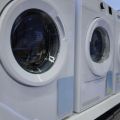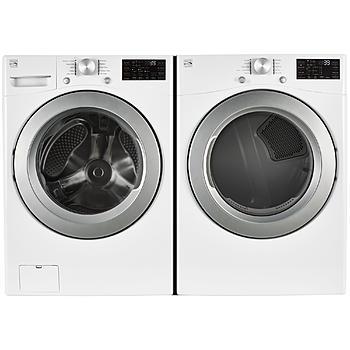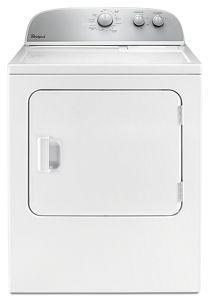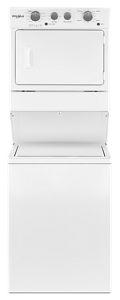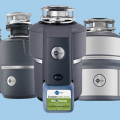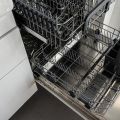First, gas dryers are sourced out by either natural gas or liquid propane gas that needs to be vented to the outside. Next, when it comes to drying clothes natural gas dryers are faster compared to electric dryers. In the same manner, the wear and tear on clothing performance are gentle because of its speed in cleaning.
However, gas dryers are a bit costly against electric models. The reason behind the pricey tag is the expensive components and parts.
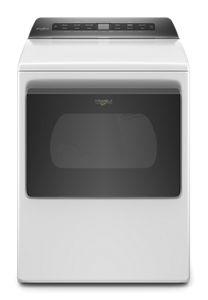
Commonly electric dryers need a 240-volt current to power-up, however, some compact or portable electric dryers run on a 110-volt current. Next, when it comes to speed, electric dryers take more time because it still needs to heat-up its elements. Additionally, electric dryers are less costly than gas dryers, but some top-of-the-line electric dryers have the same price as high-end gas dryers.
3. Size
The usual size of washers is oftentimes 27 or 27.5 inches wide, ranging a capacity from 3.1 to 6.2 cubic feet. The style is a dominant factor that will depend on how the laundry will hold as it operates. Enormous and heavy items such as comforters, beddings, and towels can be handled by a front-load washer rather than top-loaders with agitators. Standard compact machines are normally 24 inches wide and have up to 3.0 cubic feet of capacity, though they’re often closer to 2.2 or 2.4 cubic feet.
4. Dryer Capacity
Capacity plays an important role when choosing a dryer vice versa. You may notice that dryers can hold more items compared to washers since clothes fluff up and consume more space as they get dry. You simply do not want to have a dryer that can hold lesser items when doing the laundry than your washer, or else you will be drying them alternately. To prevent this burden to happen, look for a dryer having a double capacity as that of your washer.
5. Front-load vs. Top-load Washers
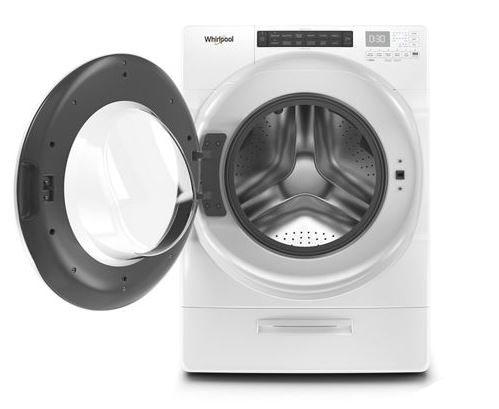
Front-loading washers are used preferably by the many and practical in choice since they don’t have an agitator. They offer greater and larger capacity and permit you to wash bulky items such as comforters rather than taking them to laundry. When it comes to energy efficiency, front-loaders are the best because they can detect how much water is required based on the load size. Lastly, they also have higher spin speeds which clothes require less drying time.
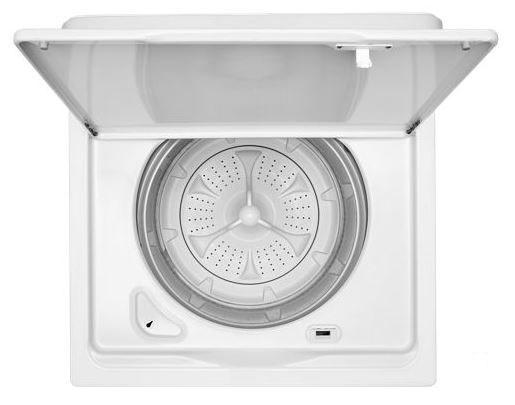
Traditionally, top-load washers are the choice of many, because it is a budget-wise choice or much cheaper. When it comes to toughness on clothes, they are also the most preferred choice because of its central agitator component that spins the clothes. Another advantage is its quickness in washing clothes but will need more time when drying because its spin cycles are much slower.
6. Washer and Dryer Other Features
The following are some of the top features you’ll most likely look and find on the newer washer and dryers you may purchase in the future:
High-Tech Features
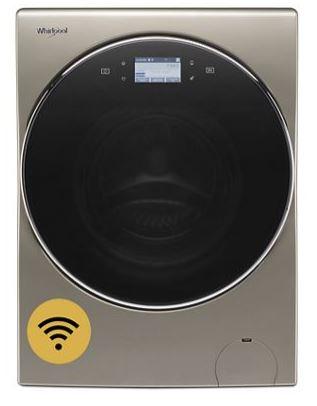
Digital display: Higher-end models have digitally display features and so easy to control cycle and watch out for your laundry in progress. The existence of indicator light will give you a signal of the remaining time on the cycle. The unit may even beep once after the session is done.
Energy-efficient: Try to look for energy-efficient models rated between A and C. This can help you save money. The units have eco-options like short wash which in turn becomes great if your clothes are not too soiled and require to be freshened. With the presence of a wider spectrum in energy-efficient washers, you can choose a lower temperature to lessen your energy consumption.
Wi-Fi-enabled
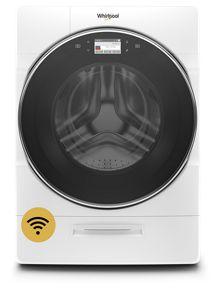
With this feature, you can control the washer and dryer. Wi-Fi-enabled washer dryers allow you to start and pause a load from your smartphone then receiving a notification when the cycle has finished.
Noise Reducer: Washer and dryers can become too noisy once operation takes place, especially if you’ve involved hard materials within. Look for washers and dryers that have high-RPM spin cycles. They are ideally best if you are living on the upper floor so you will not be disturbing your floormates.
Before you rush out and purchase the first washer or dryer you come across, it’s wise to do your research first and figure out what features will work best for your situation. Appliance Doctor can help you become the wise decision-maker that you can be.
Last-Minute Tip: To Repair or Not to Repair?
If you are having a washer or dryer that needs troubleshooting service, reconsider your decision well – is it worth it to have a new washer and dryer, will it save you more money and your time, or simply contact an appliance repair services company. If that company can repair, do they have the available parts for my washer and dryer?
When your washer and dryer is not performing at its best to your expectations or even meet your satisfaction level, probably it is high time to make that urgent
call with the doctor -
Appliance Doctor Inc.!
Your household load will be resolved by our talented Appliance Repair team. Our washer repair technicians can diagnose any complication and take care of your repairs with the expertise for which they are known.
We understand that whenever the washer parts get the malfunction, they surely create a significant inconvenience in your daily lives. Dryer parts that are not performing excellently will also create a headache and stress on your part.
No need to worry once you make a call to Appliance Doctor Inc. our washer and dryer repair team will provide top-of-the-line service and prompt repair work the same day you call. We can help you ease your burden and inconvenience.
Appliance Doctor also offers reliable and efficient appliance repairs such as:
Learn to know how we can help you with your washer and dryer needs, you can directly contact us at 239-992-0505 (Estero/Bonita Springs), 239-936-0111 (Fort Myers), 239-540-9500 (Cape Coral), 239-434-7546 (Naples) 239-642-0505 (Marco Island), and 239-732-0111 (East Naples).
